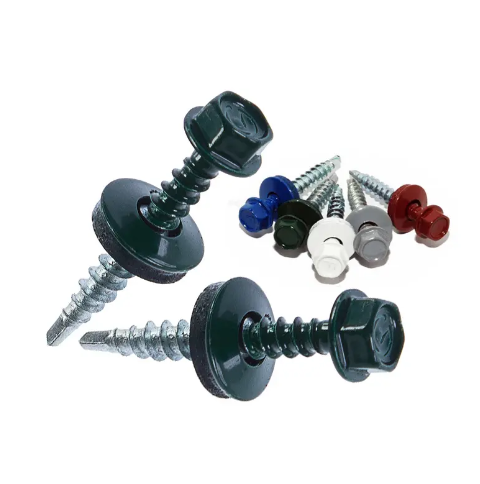Zinc Coated Flat Washers from Leading Manufacturing Facilities
The Importance of Flat Washer Zinc Factories in Modern Manufacturing
In the landscape of modern manufacturing, flat washers play a crucial role in ensuring the integrity and performance of various mechanical assemblies. One prominent type of flat washer is the zinc-coated washer, appreciated for its corrosion resistance and durability. This article delves into the world of flat washer zinc factories, exploring their significance, processes, and impact on various industries.
Understanding Flat Washers
Flat washers are disks made from various materials, designed to distribute the load of a screw or nut. Their primary purpose is to prevent damage to the surface of the material being fastened, to secure the fastener in place, and to prevent loosening due to vibration. Zinc-coated flat washers, in particular, are favored for their ability to resist rust and corrosion, making them suitable for outdoor applications and environments where moisture is prevalent.
The Role of Zinc Coating
Zinc coating provides a protective barrier between metal surfaces and environmental elements that can cause degradation. The galvanic action of zinc protects the underlying material (usually steel) by sacrificially corroding before the base metal can suffer damage. This quality is essential in a myriad of applications, from automotive and construction to electronics and machinery. The addition of zinc coating extends the lifespan of flat washers significantly, reducing the need for maintenance and replacing fasteners frequently.
Manufacturing Process in Zinc Factories
The process of manufacturing flat washer zinc involves several steps, each crucial to ensuring the final product meets industry standards. Initially, flat washers are produced from raw materials, typically steel sheets. These sheets undergo cutting and stamping to form the washer shape. The design and size can vary based on specific applications, and factories often produce washers in bulk to meet industry demands.
flat washer zinc factories

Once the washers are shaped, they undergo a process known as galvanization, where a layer of zinc is applied. This can be done through several methods, including hot-dip galvanizing and electroplating. Hot-dip galvanizing involves immersing the washers in molten zinc, resulting in a thicker zinc layer that offers enhanced corrosion resistance. Conversely, electroplating uses an electrical current to bond zinc to the surface, allowing for a smoother finish and more uniform coating.
Quality control is a vital aspect of the manufacturing process. Zinc factories typically implement stringent testing procedures to ensure that the flat washers meet applicable regulations and standards, such as those from ASTM (American Society for Testing and Materials) or ISO (International Organization for Standardization). This includes checking for dimensional accuracy, zinc coating thickness, adhesion, and overall integrity.
Impact on Various Industries
Flat washer zinc factories play a critical role across numerous industrial sectors. In the automotive industry, for example, they are essential components in assembling parts that undergo vibration and movement, ensuring long-term durability and performance standards. Similarly, in construction, these washers are used to secure structural elements, bolstering the safety and reliability of buildings and infrastructures.
The electronics sector also benefits from zinc-coated flat washers, as they are often used in the assembly of circuit boards and other components where resistance to environmental stressors is crucial. Furthermore, marine applications utilize these washers due to their enhanced corrosion resistance, critical in environments subjected to saltwater exposure.
Conclusion
Flat washer zinc factories are indispensable in the modern manufacturing ecosystem. They produce essential components that ensure the performance and longevity of various assemblies across multiple industries. With ongoing advancements in manufacturing technology and materials, these factories will continue to innovate, contributing to the development of more efficient and durable fastening solutions. As industries evolve, the importance of quality, reliability, and corrosion resistance in components such as flat washers will only grow, solidifying the pivotal role of zinc-coated flat washer manufacturing in today's economy.
-
Top Choices for Plasterboard FixingNewsDec.26,2024
-
The Versatility of Specialty WashersNewsDec.26,2024
-
Secure Your ProjectsNewsDec.26,2024
-
Essential Screws for Chipboard Flooring ProjectsNewsDec.26,2024
-
Choosing the Right Drywall ScrewsNewsDec.26,2024
-
Black Phosphate Screws for Superior PerformanceNewsDec.26,2024
-
The Versatile Choice of Nylon Flat Washers for Your NeedsNewsDec.18,2024










